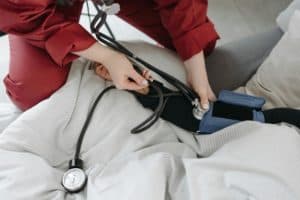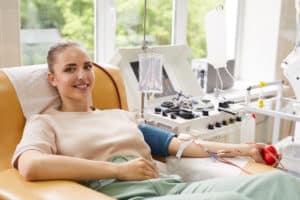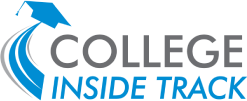Health Science Majors and the High School Activities List with CIT Consultant Kim Koffi
Written by CIT Consultant Kim Koffi
If you want to be a doctor, a nurse, physical therapist, or something else in the health sciences, engaging in activities that demonstrate your commitment to your community can set you apart from the rest in the applicant pool. College Admissions professionals review hundreds of applications, and, while taking and doing well in courses like biology and chemistry are very important, the applicant with experiences caring for patients, watching surgeries, or researching topics that concern the health and well being of various communities can assure an admissions representative that you have the characteristics necessary to be successful in the major you are pursuing.
 Not only is it important to build an activities list to increase the likelihood of getting a spot in a competitive applicant pool, but it is also important for your own personal growth. Apart from helping you to explore the many different avenues that the health sciences offer, engaging in extracurricular activities can help you grow in empathy, compassion, and knowledge that will bode well for you once you get to college and eventually your career.
Not only is it important to build an activities list to increase the likelihood of getting a spot in a competitive applicant pool, but it is also important for your own personal growth. Apart from helping you to explore the many different avenues that the health sciences offer, engaging in extracurricular activities can help you grow in empathy, compassion, and knowledge that will bode well for you once you get to college and eventually your career.
Furthermore, becoming a Certified Nursing Assistant or Junior Emergency Medical Technician, for example, can give you advantages by building a professional network, giving you exposure to nurses and other medical professionals carrying out tasks, and allow you to participate in experiences that give you practice in managing the stressors that come with this career field.
Find 10 examples below for ways to engage, lead, and grow as you prepare for healthcare professions:
- Attend health science programs and camps (check application requirements, costs, and deadlines–now is the time!)
- Scrubs Camps in Minnesota at lots of different locations/dates
- BullD.O.G.S. in Healthcare at Drake University in Iowa
- Health Professions Recruitment and Exposure Program at University of Texas Southwestern Medical Center
- Future Physician’s Day in Central Wisconsin
- Future Oral Health Workforce Day in Central Wisconsin
- Health and Biomedical Science Camp at Lebanon Valley College in Pennsylvania
- Health Professions Exploration Program at Kansas State University
- Mayo Clinic College of Medicine and Science’s Career Immersion Program in Rochester, MN
- Bulldog Pharmacy Camp at Samford University in Alabama
- Future Physicians America Summer Academy at the University of Central Florida
- And so many more!
- Volunteer at hospitals. Hospitals have volunteer positions for teens–and usually you have to be 16 years old to start, and getting these positions can take time. You may have to get fingerprinted, provide a resume, and sit for an interview. So, get started early in the process. Some examples include
- Jr. Volunteer Program at Penn Hospital
- Mayo Clinic Health Systems in Chippewa Falls, Wisconsin
- Search volunteer opportunities at hospitals near you.
- Volunteer at a local nursing home by contacting the recreation director or volunteer coordinator. Like becoming a volunteer at a hospital, this could take time.
- Apply to Healthcare internships in your area like the paid Minnesota Summer Health Care Internship Program (SHCIP)
- Become a Certified Nursing Assistant or Junior EMT.
-
- Every state has their own licensure requirements.
- Check with Community and Technical Colleges and the Department of Human Services in your state to learn more.
- It’s also important to know that some colleges require this to get into the nursing program! An examples is Minnesota State University in Mankato’s nursing admission application, which states: “Full admission to the Pre-Licensure Program requires students to fulfill the following requirements prior to program start date:
- Certified as a nursing assistant, and listed as active on a Nursing Assistant Registry in the United States.
- Completion of required Support Prerequisites with a minimum C grade.
- Approval to work with patients without supervision from the Minnesota Department of Health Background check.

- Engage in job shadow experiences and Informational Interviews with doctors, nurses, radiologist, nurse anesthetists, or other professionals in your area
- Help to organize blood drives with the Red Cross or get involved in other public healthcare initiatives in your area. This can demonstrate strong leadership skills in areas specifically related to your academic and career pursuits.
- Doing research beyond your classroom expectations with companies like
-
- Camp BioMed in Seattle with the Northwest Association for Biomedical Research
- Polygence
- Acquire medical training in First Aid, CPR, and AED through the Red Cross
- Engage in clubs at your school or start one!
There are many paths to developing activities that will not only strongly support your Health Science application, but also perhaps help you differentiate possible future career paths. Pick a few that suit you best, and have fun!
